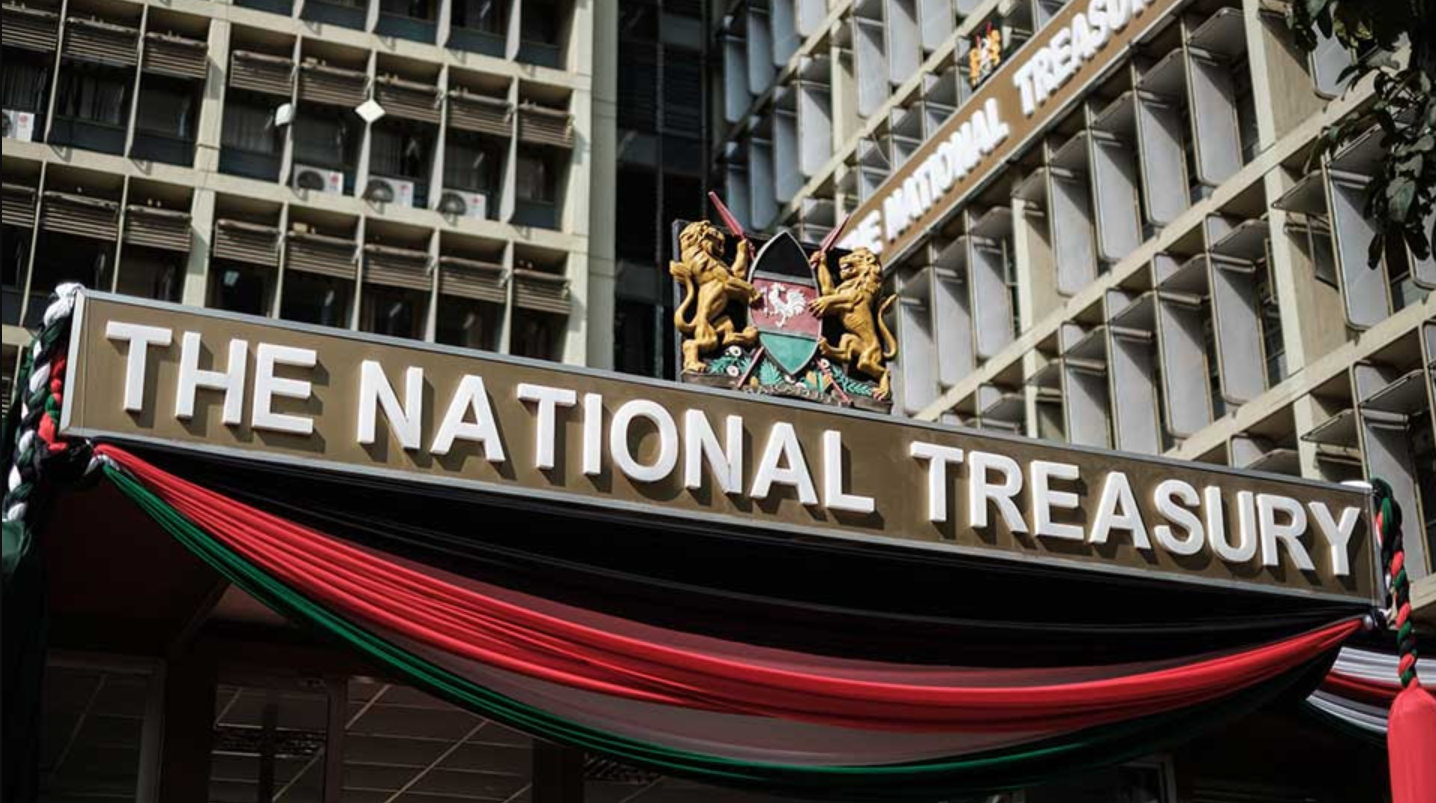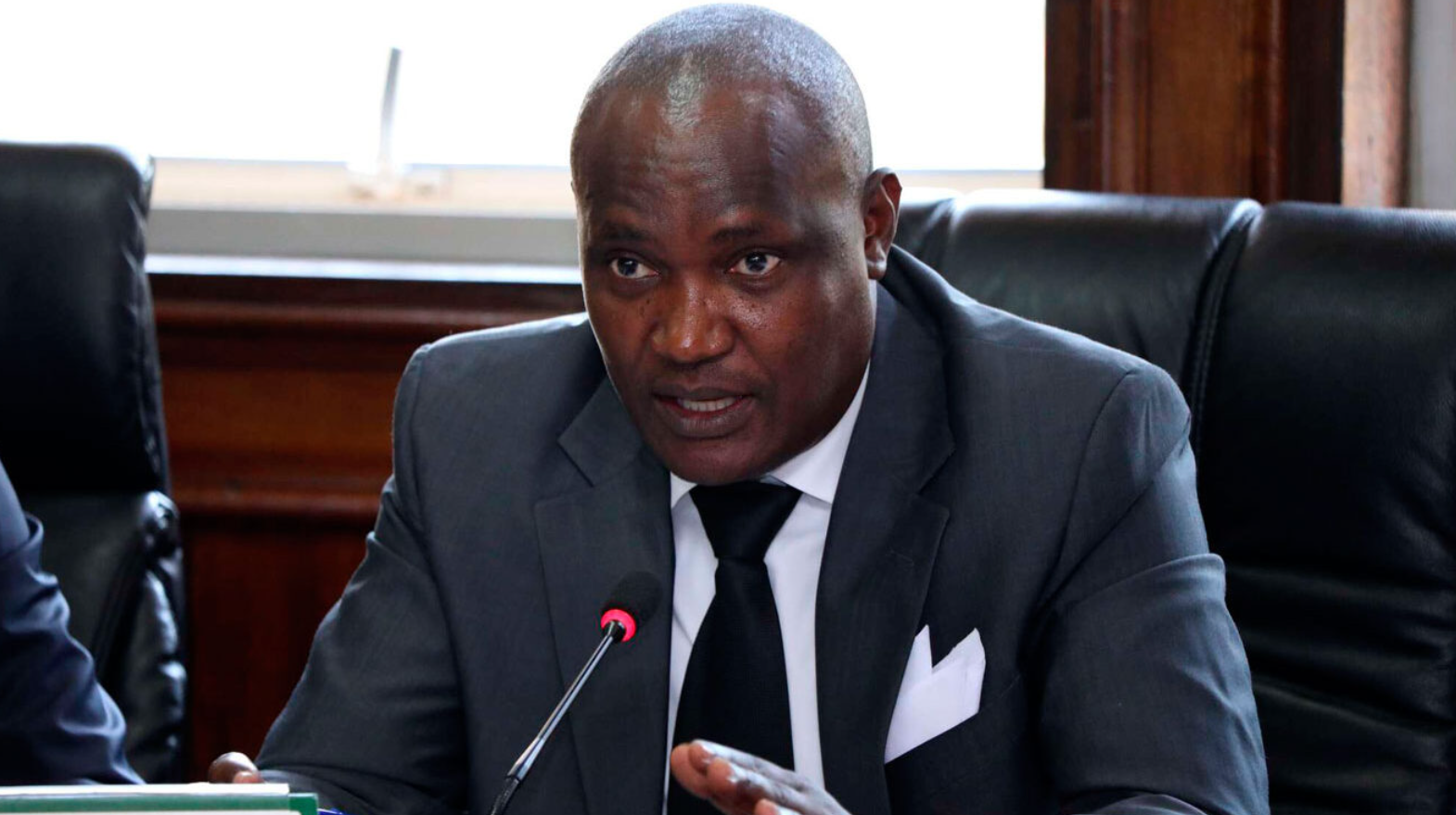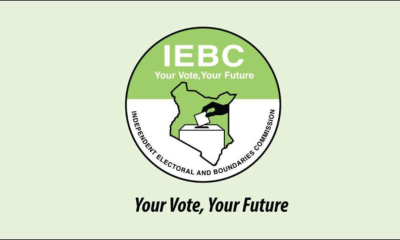Economy
National Treasury Slashes Budget 2025/2026 by Ksh23.9 Billion as Ruto’s Office and NIS Face Cuts

Kenyans are bracing for leaner times after the National Treasury slashed the 2025/2026 budget by a hefty Ksh23.9 billion.
This bold move trims the national budget from Ksh4.263 trillion to Ksh4.24 trillion, reflecting President William Ruto’s shift towards stricter austerity measures.
While some sectors like police and defense get a funding boost, key departments including the Executive Office of the President and the National Intelligence Service (NIS) are seeing major cuts.
The government says this is part of a broader push to reduce the fiscal deficit and satisfy international lenders.

The Independent Electoral and Boundaries Commission (IEBC) is receiving a significant boost of Ksh5.75 billion. Its budget jumps from Ksh3.85 billion to Ksh9.6 billion, likely due to preparations for the 2027 general elections. [Photo: Screenshot]
Deep Dive into Budget 2025/2026 Cuts and Increases
Treasury Cabinet Secretary John Mbadi unveiled the revised Budget 2025/2026 estimates on Monday, May 5, sparking national debate. The reduction of Ksh23.9 billion is aimed at capping Kenya’s fiscal deficit at 4.5 percent of GDP. This is a significant drop from 5.3 percent in 2023/24 and 5.1 percent in 2024/25.
The Treasury itself faces one of the steepest cuts. Its allocation has been slashed by Ksh6.97 billion in the upcoming financial year. This signals a commitment to tightening the government’s own belt before imposing austerity elsewhere.
The Executive Office of the President is another high-profile loser. Its budget is set to shrink by Ksh3.4 billion, falling from Ksh4.491 billion in 2024/2025 to Ksh3.88 billion in 2025/2026. The cut is seen as symbolic, showing that even the highest office is not immune to financial discipline.
Perhaps the most striking reduction is at the National Intelligence Service. Its budget will be reduced by Ksh4.2 billion, from Ksh55.65 billion down to Ksh51.45 billion. This is despite ongoing security challenges in the country and region.
Other departments facing cuts include the State Department for Immigration and Citizen Services, which will lose Ksh1.2 billion. Its budget will now stand at Ksh11.77 billion, down from Ksh13 billion.
But not everyone is tightening their belts. The Ministry of Defence, National Police Service, and education-related departments are set to gain. This reflects the government’s priorities in security and human capital development.
Interestingly, the Independent Electoral and Boundaries Commission (IEBC) is receiving a significant boost of Ksh5.75 billion. Its budget jumps from Ksh3.85 billion to Ksh9.6 billion, likely due to preparations for the 2027 general elections.
Why Budget 2025/2026 Matters for Kenya’s Economy
The trimming of the budget comes amid growing pressure from international lenders like the International Monetary Fund (IMF) and the World Bank. These institutions have been urging Kenya to curb its growing debt and cut back on public spending.
The 2025/2026 budget plans to raise around Ksh1.9 trillion through public debt to bridge funding gaps. Even with the reduced budget, the government still faces tough choices to balance development needs with fiscal responsibility.
In the public service sector, Treasury Secretary Mbadi revealed that Ksh4.67 billion will be spent on salaries and allowances. Meanwhile, Ksh235 billion is earmarked for pensions and gratuity payments, underscoring the significant cost of maintaining Kenya’s public workforce.
The revised budget now moves to Parliament for debate and approval. Lawmakers will scrutinize the estimates before the budget reading next month. The new fiscal year begins on July 1, marking the start of the government’s tighter financial management strategy.
Public Reaction and Future Outlook
Reactions to the Budget 2025/2026 cuts have been mixed. Some Kenyans welcome the move as a necessary step to stabilize the economy. Others worry that cutting essential services could harm development and security.
Economists argue that while austerity can bring fiscal discipline, the government must ensure that vital services are not compromised. The increase in funding for security and upcoming elections signals the administration’s balancing act between fiscal prudence and political realities.
President Ruto’s administration hopes that these budget cuts will restore confidence among investors and global lenders. However, with high public debt and upcoming elections, the road ahead remains challenging.
As Parliament prepares to debate the estimates, all eyes will be on how these budget changes translate into real-world impact for ordinary Kenyans.
Kenya Insights allows guest blogging, if you want to be published on Kenya’s most authoritative and accurate blog, have an expose, news TIPS, story angles, human interest stories, drop us an email on [email protected] or via Telegram
-

 Grapevine2 weeks ago
Grapevine2 weeks agoRussian Man’s Secret Sex Recordings Ignite Fury as Questions Mount Over Consent and Easy Pick-Ups in Nairobi
-

 News1 week ago
News1 week agoTHE FIRM IN THE DOCK: How Kaplan and Stratton Became the Most Scrutinised Law Firm in Kenya
-

 Investigations1 week ago
Investigations1 week agoMulti-Million Dollar Fraud: Three Kenyans Face US Extradition in Massive Cybercrime Conspiracy
-

 Economy1 week ago
Economy1 week agoIran Demands Arrest, Prosecution Of Kenya’s Cup of Joe Director Director Over Sh2.6 Billion Tea Fraud
-

 Business1 week ago
Business1 week agoA Farm in Kenya’s Rift Valley Ignites a National Reckoning With Israeli Investment
-

 Africa2 weeks ago
Africa2 weeks agoFBI Investigates Congresswoman Ilhan Omar’s Husband’s Sh3.8 Billion Businesses in Kenya, Somalia and Dubai
-

 Grapevine5 days ago
Grapevine5 days agoA UN Director Based in Nairobi Was Deep in an Intimate Friendship With Epstein — He Even Sent Her a Sex Toy
-

 News2 weeks ago
News2 weeks agoTragedy As City Hall Hands Corrupt Ghanaian Firm Multimillion Garbage Collection Tender




























